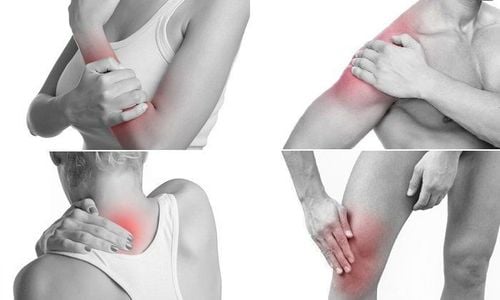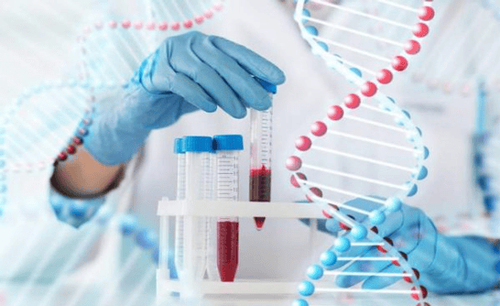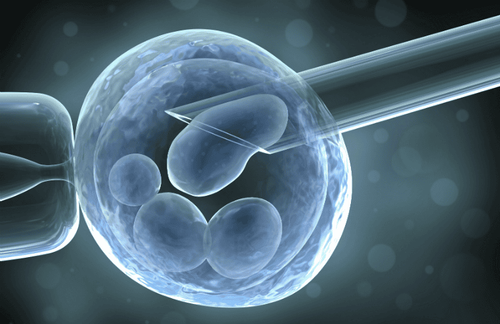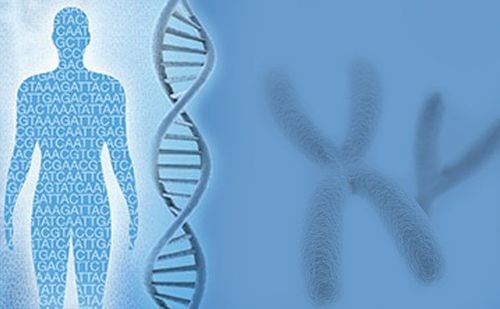This is an automatically translated article.
The article was written by Dr. Do Phuoc Huy - Vinmec High Technology CenterGlycogen storage disorder type 0 (also known as GSD 0) is a disease in the group of abnormal glycogen storage disorders. Glycogen storage disorder type 0 is caused by a decrease in glycogen stores, the body's main source of energy.
1. General information
Glycogen storage disorder type 0 is caused by an abnormality in the enzyme glycogen synthase present in the liver and muscle, from which there are also two different types of glycogen storage disorders type 0 which are glycogen storage disorders type 0 - muscle expression and impaired glycogen storage type 0 – liver manifestations.
Currently in the literature less than 10 cases of glycogen storage disorder type 0 - muscle manifestations and less than 30 cases of glycogen storage disorders type 0 - liver manifestations. However, due to the number of young sudden deaths from undiagnosed cardiac arrest as well as many cases with mild symptoms, the incidence of type 0 glycogen storage disorders may not be accurately estimated.
2. Types of glycogen storage disorders type 0
2.1 Disorders of glycogen storage type 0 - expressed in muscle In muscle, glycogen when degraded produces ATP to provide energy for muscle contraction. Therefore, when there is not enough glycogen stores (in type 0 glycogen storage disorder - muscle expression due to an abnormality of the muscle glycogen synthase enzyme) symptoms will often appear from infancy to puberty including: : pain, muscle weakness, easy fainting or convulsions especially after moderate to heavy physical activities such as climbing stairs.
Some cases of patients with glycogen storage disorder type 0 - muscle manifestations have noted abnormalities on electrocardiogram such as long QT syndrome ... In all cases, GSD0 impaired normal ejection normal cardiac function and increases the risk of cardiac arrest and sudden death. Sudden cardiac death has been reported in both infants and adults with impaired glycogen storage type 0 - muscle expression, usually after strenuous activity. On autopsies, it is often noted that the patient has an enlarged myocardium.
Muscle glycogen storage disorder type 0 - expressed in muscle (OMIM
611556) is caused by mutations in the GYS1 gene (encoding for muscle glycogen synthase) on chromosome 19q13. The GYS1 gene includes 25181 bases, 16 exons coding for 737 amino acids. Up to now, all GYS1 gene mutations that have been reported to cause disease or possibly cause disease in ClinVar are located in the exon or splicing regions. With gene tests examining exon and proximal exon levels, it is possible to detect gene mutations related to this group of type 0 glycogen storage disorders.

Rối loạn dự trữ glycogen type 0 với những biểu hiện ở cơ
2.2 Glycogen storage disorder type 0, manifested in the liver In the liver, glycogen when degraded produces glucose to supply the liver as well as other organs in the body. Therefore, when there is not enough glycogen stores (in the pathology of glycogen storage disorder type 0 - liver manifestation due to an abnormality of the liver glycogen synthase enzyme) manifestations will often appear from the neonatal period including: hypoglycemia bleeding (especially at the beginning of nocturnal weaning), or after an acute gastrointestinal illness; increased blood ketones; fatigue, paleness; nausea, and growth retardation (22% of cases with type 0 glycogen storage disorders, liver manifestations with documented growth retardation). Abdominal examination may show normal size or mildly enlarged liver (due to fatty liver, not due to glycogen storage like other glycogen storage disorders).
In addition, because the child cannot synthesize glycogen, he may show increased blood sugar after eating, which may confuse the child with neonatal diabetes.
Liver glycogen storage disorder type 0, expressed in the liver (OMIM
240600) is caused by mutations in the GYS2 gene (encoding for the liver glycogen synthase enzyme) on chromosome 12p12.1. The GYS2 gene includes 73332 bases, 16 exons coding for 703 amino acids. Up to now, nearly 90% of GYS2 mutations reported to be pathogenic or pathogenic in ClinVar are located in the exon or splicing region. With gene tests examining exon and proximal regions, most of the gene mutations related to this group of glycogen storage disorders type 0 can be detected.
3. Genetic testing for the group of genetic disorders type 0
Currently, the next generation gene sequencing (NGS) test allows the investigation of many genes and regions of the gene at the same time. In GSD0 pathology, because mutations mainly occur in the coding region (exon) and splicing site (splicing site), coding region gene sequencing tests such as WES can meet this need, as well as help differential diagnosis with other pathological groups in the group of glycogen storage disorders.

Xét nghiệm gen giúp bác sĩ chẩn đoán phân biệt với các nhóm bệnh lý khác
4. Treatment with glycogen storage disorders type 0
Currently there is no specific treatment for glycogen storage disorders type 0.
With glycogen storage disorders type 0, expressed in the liver, the goal of treatment is to prevent hypoglycemia and fasting acidosis in children by giving them regular meals and snacks every 3-4 hours. Using "slow-release" forms of glucose such as cornstarch is effective in maintaining blood sugar in children. A high protein diet (3g/kg/day) along with sugar restriction will help limit hyperglycemia, blood insulin as well as blood lactate.
With type 0 glycogen storage disorder, which manifests in muscle, there is currently not much evidence or effective treatment recommendations. In children with cardiac abnormalities, beta-blockers such as bisoprolol and metoprolol are effective in preventing cardiovascular events.
Please dial HOTLINE for more information or register for an appointment HERE. Download MyVinmec app to make appointments faster and to manage your bookings easily.
The article references the source:Chen, M. A., & Weinstein, D. A. (2016). Glycogen storage diseases: Diagnosis, treatment and outcome. Translational Science of Rare Diseases, 1(1), 45–72. doi:10.3233/trd-160006 Kollberg, G., Tulinius, M., Gilljam, T., Östman-Smith, I., Forsander, G., Jotorp, P. Holme, E. (2007). Cardiomyopathy and Exercise Intolerance in Muscle Glycogen Storage Disease 0. New England Journal of Medicine, 357(15), 1507–1514. doi:10.1056/nejmoa066691. https://medlineplus.gov/genetics/condition/glycogen-storage-disease-type-0/ https://www.omim.org/entry/611556 https://www.omim.org/entry/240600 https: //www.genecards.org/cgi-bin/carddisp.pl?gene=GYS2 https://www.genecards.org/cgi-bin/carddisp.pl?gene=GYS1













